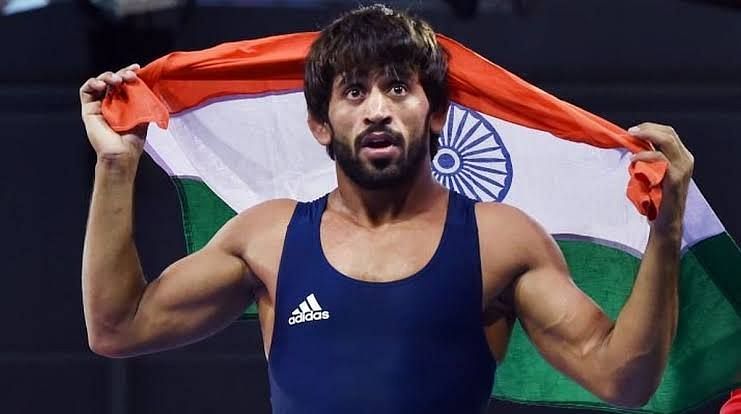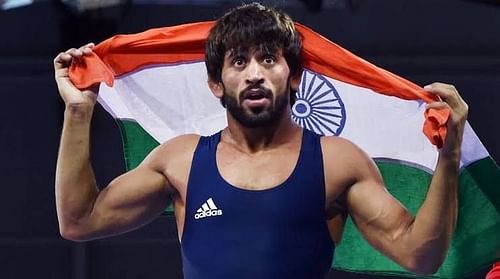
'I never feel the pressure of expectations': Bajrang Punia keen on performing well at Tokyo Olympics

Indian wrestler Bajrang Punia has acknowledged the high standards that are regularly expected from him but asserted that he never felt the pressure of expectations because he always keeps in mind how the burden of such thoughts could hamper his performances.
In a live chat with Indranil Basu on Sportskeeda's Facebook Page, Bajrang Punia spoke about India's chances at the Tokyo Olympics. The freestyle wrestler opined that if the Tokyo Olympics had not been postponed, Indian athletes could have won at least three to four medals in 2020.
'If a player comes under the pressure of expectations, I don't think he can win': Bajrang Punia
Bajrang Punia is one of the leading contenders to win the gold medal in the 65kg category of wrestling, and fans are understandably expecting a gold medal from him. When asked if he feels the pressure of expectations, he replied:
"I never feel that pressure. I feel good that people expect something from me. We work hard every day so that we can win a medal for our country. If we take the pressure of expectations, we cannot perform well on the mat. We cannot realise the full potential of our training. If any player takes that pressure, I don't think he can win a match."
Sushil Kumar played a significant role in Bajrang Punia's wrestling career as his two Olympic medals greatly inspired the latter. Speaking about Kumar, Punia said:
"After Sushil Bhai (Sushil Kumar) won the medal in 2008, our thinking changed. We got the belief that even we can win medals at the Olympics. Then in 2012, we won two medals in wrestling thanks to Yogeshwar Bhai (Yogeshwar Dutt) and Sushil Bhai. Those victories had an impact on our thinking, and eventually, I won medals at the World Championships in 2013 and 2014."
Bajrang Punia also talked about the importance of having a foreign coach, stating that having a Georgian coach has helped him interact with people whenever he visited any European country. He is also of the belief that foreign coaches arranged better wrestling partners for training.